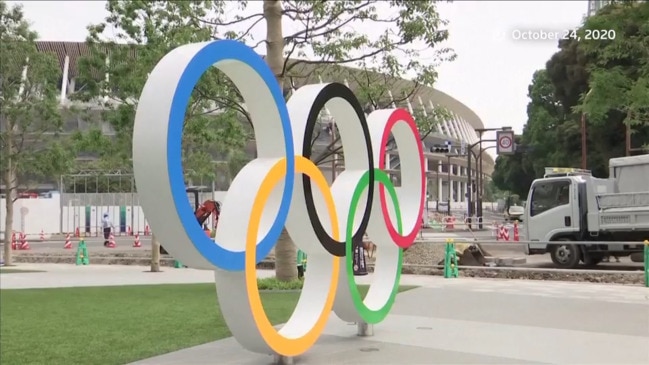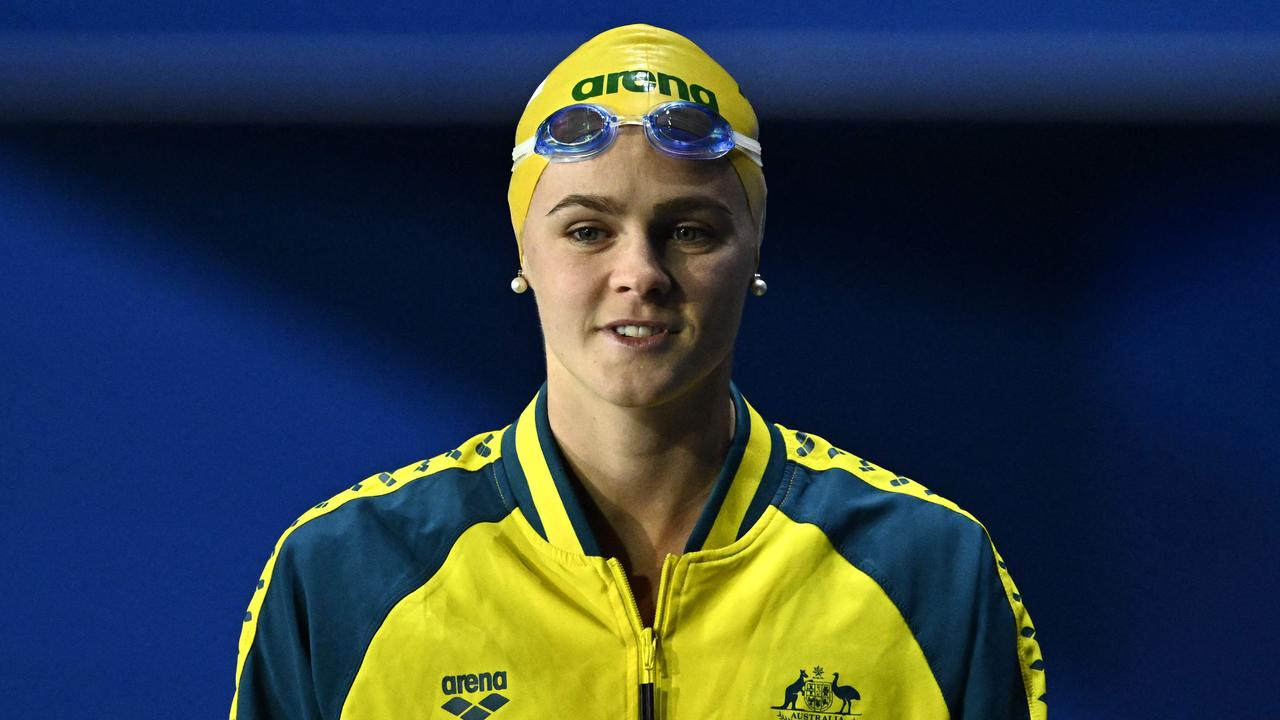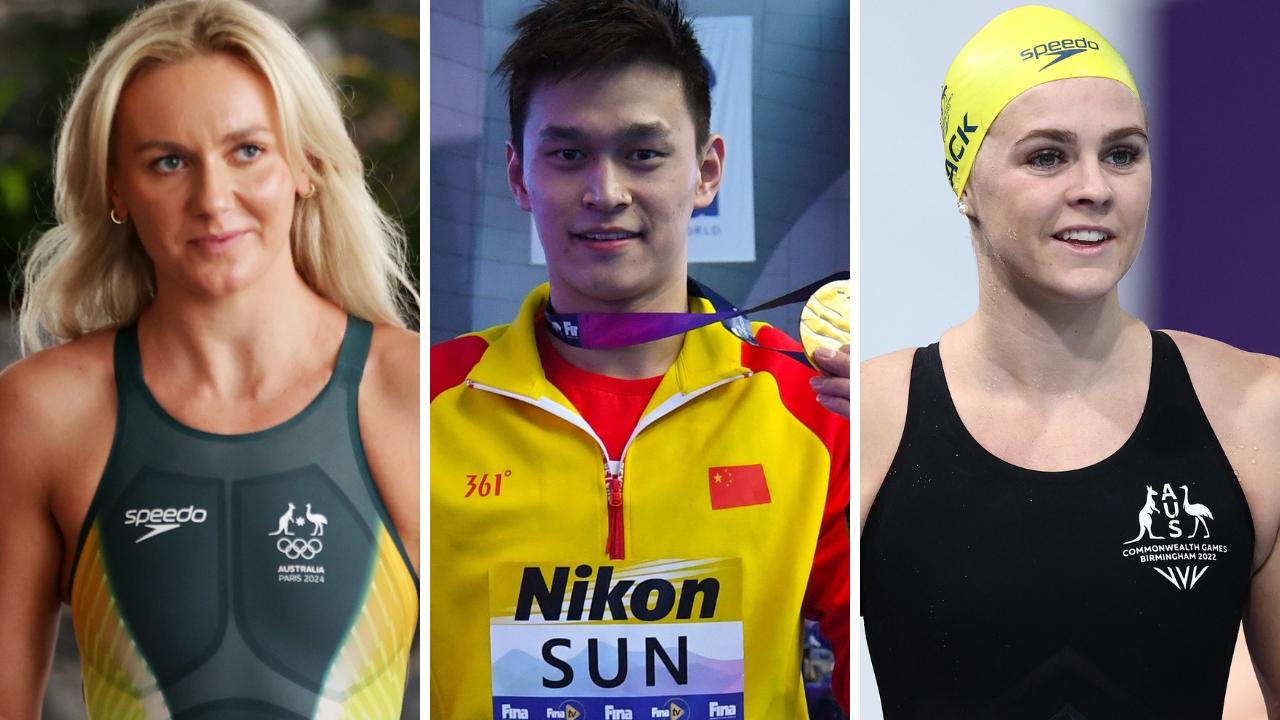
China swimming scandal ‘stabs athletes in the back’
Aussie sporting royalty have reacted with scorn as bombshell new details emerged around the doping scandal that’s rocked the Olympics.
Australian sporting royalty have been left staggered as bombshell new details emerged about China’s alleged doping cover up.
It emerged on Saturday 23 Chinese swimmers tested positive for a banned drug before the Tokyo Olympics in 2021, the World Anti-Doping Agency (WADA) confirmed.
The global doping watchdog left many commentators stunned after the organisation defended its decision to let those swimmers compete based on China’s findings they had ingested it unknowingly.
China is reportedly facing the prospect of being stripped of an Olympic gold medal as a result of the swirling drama, News Corp’s Julian Linden first reported.
The New York Times and German broadcaster ARD reported Saturday that the athletes included nearly half of the swimming team that China sent to Japan. The 30-member Chinese swim team won six medals in Tokyo, including three golds.
Many are expected to be in contention again at the Paris Olympics this summer.
It was determined they had all been innocent victims of a mass contamination of the same prohibited drug Sun Yang was once banned for.
The Times reported that they tested positive for a prescription heart drug, trimetazidine (TMZ) — which can enhance performance — at a domestic meet in late 2020 and the first days of 2021.
But it was determined by Chinese anti-doping authorities that they ingested the substance unwittingly from tainted food and no action against them was warranted.
Australia’s Shayna Jack missed the Tokyo Olympics as part of a two-year ban for testing positive to anabolic agent ligandrol.

Newspaper reports have cited a review of confidential documents and emails, including a report compiled by the Chinese anti-doping agency and submitted to its global counterpart WADA.
It said WADA and swimming’s governing body World Aquatics, which at the time was known as FINA, decided not to act due to “a lack of any credible evidence” to challenge China’s version of events.
WADA, in a statement on Saturday decrying “some misleading and potentially defamatory media coverage this week”, said that it had “ultimately concluded that it was not in a position to disprove the possibility that contamination was the source of TMZ and it was compatible with the analytical data in the file”.
“WADA also concluded that, given the specific circumstances of the asserted contamination, the athletes would be held to have no fault or negligence.”
Australian royalty respond to bombshell
Aussie pool queen Ariarne Titus says it is still “too raw” to get her head around the allegations made against Chinese swimmers.
“Every time you race, you just hope you’re racing people that are in the same boat as you, and they’ve worked as hard as they can to get to that position, in a fair manner,” she said on Channel 9’s Today Show.
“And so, I hope it’s like that in Paris as well.”
She showed signs of how she really felt when saying “clean sport is about respecting your competitors”.

Socceroos great Craig Foster, who is also a Medal of the Order of Australia recipient, was scathing when addressing the issue on Channel 9.
“It stinks. It’s the same substance that Sun Yang was banned for taking for four years,” he said.
“The fact it’s taken so long now, Australian’s and athletes around the world have a right to be outraged about it.”
Aussie swimming icon Grant Hackett said the results should have been made public at the time.
“You can’t come out and obviously tarnish everyone as a drug cheat immediately but it’s very suspect given the circumstances and the fact it wasn’t disclosed … that’s the thing that makes it more suspicious than anything else,” Hackett said.
“It’s like well, if there is nothing to hide, why aren’t we disclosing that there was a process undertaken? That there was people that essentially tested positive but there was contamination, so there was nothing to see here.”
Shayna Jack’s lawyer Tim Fuller said it was “inexplicable” why WADA didn’t challenge the verdict made by the China anti-doping body.
“To say this decision is an outlier is an understatement,” Fuller told News Corp Australia.
“It is perplexing, inconsistent and the secrecy and efforts to disclose any publication or announcement is mystifying.
“It is the kind of decision that further erodes athlete confidence in WADA.”
He also said: “It beggars belief that they did not challenge this in a hearing at the Court of Arbitration for Sport (CAS). They are practically saying that they believe all the evidence that was put forward, all of the athlete’s and Chinese Swim Federation’s arguments and nothing needs to be examined independently.”
China stripped of gold medal
The revelations come amid reports China’s women’s 4x200m freestyle relay has been stripped of its gold medal from the Tokyo Olympics
SwimSwam first reported American swimmers had been notified China’s relay team from the Tokyo Olympics had been disqualified due to an alleged doping violation.
It means the Chinese will be stripped of their gold medals and world record swim of 7:40.33, which was since broken by Australia at last year’s world titles.
It’s not known who tested positive, but the members of China’s relay team were Yang Junxuan, Tang Muhan, Zhang Yufei, and Li Bingjie in the finals, along with Dong Jie and Zhang Yifan in the prelims.

Australia finished third in the 4x200m relay in what was a disappointing result amid controversy over the entire finals relay team being rested from the heats swim.
The Aussies who would be elevated to a silver medal are Ariarne Titmus, Emma McKeon, Madi Wilson, Leah Neale, Meg Harris, Mollie O’Callaghan, Brianna Throssell and Tamsin Cook.
Canada finished fourth in the relay and would be elevated to the bronze medal position.
‘Stabbed in the back’: American anti-doping boss rips WADA to pieces
World Aquatics confirmed to the Times the cases had been reviewed by a doping control board and were subjected to independent expert scrutiny.
But the United States Anti-Doping Agency said the swimmers should have been suspended and publicly identified, calling WADA’s lack of action “a devastating stab in the back of clean athletes”.
The organisation’s chief executive Travis Tygart claimed he had provided WADA with allegations of doping in Chinese swimming multiple times since 2020.
WADA said that “the information provided to us by USADA and others was reviewed on each occasion in line with our normal procedure, and assessed according to the criteria stipulated within our Confidential Source Policy”.
“The data held by us clearly showed that there had been no attempt to hide the positive tests as they had been reported in the usual way by the Chinese authorities. Therefore, based on the available information and a lack of any credible evidence, the threshold for WADA I&I (Intelligence and Investigations Department) to open an investigation was not met.”
Tygart called the news of the failed tests “crushing”.
“It’s even more devastating to learn the World Anti-Doping Agency and the Chinese Anti-Doping Agency secretly, until now, swept these positives under the carpet by failing to fairly and evenly follow the global rules that apply to everyone else in the world,” Tygart said in an USADA statement on Saturday.
“Our hearts ache for the athletes from the countries who were impacted by this potential cover-up and who may have lost podium moments, financial opportunities, and memories with family that can never be replaced.
“All of those with dirty hands in burying positive tests and suppressing the voices of courageous whistleblowers must be held accountable to the fullest extent of the rules and law.”
WADA later lashed out at Tygart claiming his remarks were “outrageous, completely false and defamatory”.

“Mr. Tygart should realise that it is not only American athletes who can fall victim to situations of no-fault contamination,” WADA said, adding that “following Mr. Tygart’s false allegations, WADA has no choice but to refer this matter to its legal counsel for further action.”
Tygart promptly hit back, calling it “disappointing to see WADA stoop to threats and scare tactics when confronted with a blatant violation of the rules governing anti-doping.”
Tygart said USADA had long advocated for a change in rules regarding accidental contamination cases but said that TMZ was not among the substances that can cause such contamination.
He added that in investigating potential contamination cases USADA followed anti-doping rules including the issuing of provisional suspensions and disqualification of results pending the outcome of cases.
“Transparency is the key to shining the light in the darkness, and here, by not following the rules, WADA and CHINDA have left clean athletes in the dark,” Tygart said.
Chinese swimming has a chequered doping history. Seven Chinese swimmers tested positive for steroids at the 1994 Asian Games in Hiroshima.
In 1998, swimmer Yuan Yuan was banned after Australian customs officers discovered a large stash of human growth hormone in her bags at the World Championships in Perth.
More recently, three-time Olympic champion Sun Yang was banned for doping, ruling him out of the Tokyo Olympics.
— with AFP





